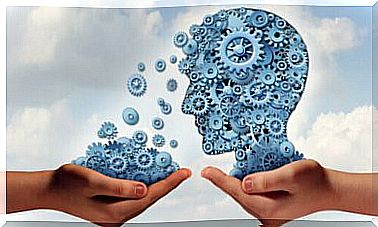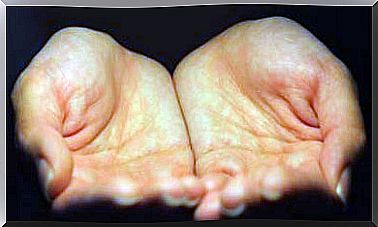How Do You Know When To Trust Intuition?

The intense pace of everyday life can make it difficult to search for any kind of spiritual evolution. When we’ve planned everything we’re going to do for the day and set ourselves on a set course, it’s hard to know if we should trust our intuition when it tries to talk to us.
For Plato, intuition was the highest function of intelligence, a way of gaining knowledge that is not gained from observation, experience, inference, or reason. However, what exactly is intuition and how do we know when to trust it? The Real Academia Española (RAE) defines the term intuition as “the ability to know, understand or perceive something clearly and immediately, without the intervention of reason”.
Perhaps the best way to start working on our intuition is to ask us two questions: Am I happy? Do I feel satisfied? These are just two of the endless questions that intuition can help us investigate, then make the necessary changes and answer with a clear and sincere “yes” to both.
The first psychological study of intuition dates back to the Swiss psychiatrist Carl Jung, who proposed the dimension of intuition in personality. He argued that people who rely on this resource are more likely to let their own thoughts dominate their experience, rather than adopting a “bottom-up” approach to life, in which data drives their decisions. Thus, they let their own thoughts and feelings take over, through a more “top-down” approach.

Where does intuition live in our brain?
As University of Iowa experts have specified in one study, the brain’s so-called “intuition axis” is the prefrontal cortex, or technically, the so-called vmPFC. There are many cultural representations that have accurately expressed where intuition is located.
For example, in the X-Men movie comics, how did Professor X summon his psychic powers? He placed his fingers over his temples and closed his eyes. Then, from the center of his forehead, energy waves glowed in all directions. That axis of intuition is right there, in the center of the forehead.
The study mentions that being highly intelligent is the key to success. However, in many moments this premise is not fulfilled, as even people with a very high IQ or with some damage to their intuitive axis also often experience problems or blocks in decision making.
Discarding intuition as a useful tool, especially when the amount of information is so great that it is impossible to process it in an analytical and conscious way, is to forgo the best tool we have for these situations. Without it, we seem to become more gullible, being more vulnerable to publicity and showing greater difficulty in learning from mistakes, as the study’s authors argue.
Meditation as the way to understand when to trust intuition
Understanding when to trust our intuition definitely takes practice, commitment and dedication, just like building any other habit. However, the process is easier than we think, and it is very rewarding, as intuition is a kind of emotional conjecture or hunch that we can “sharpen” with the help of a few simple techniques.
For Allan Wallace, Tibetan Buddhist author of the book Contemplative Science , we can develop our intuition by relying on meditation, a primordial technique that helps us to concentrate and calm the mind, while eliminating the “pollution”, or the residual thoughts that hamper the original intuitive ability.

What is the role of meditation?
Meditation is nothing more than training for the mind that offers us greater emotional freedom, connecting us with our surroundings and opening us to the experience itself. A technique that allows us to relax to enter a state of greater mental clarity and, as a result, makes us more resolute.
In another study, neuropsychologists at Wake Forest University came to the conclusion that study participants who were meditators significantly increased their brain activity, or, technically speaking, the interconnectedness of the prefrontal cortex, the brain region responsible for behavior control and decision making. What does this mean for those who want to make accurate decisions?
These results showed how meditation links us directly to our ultra-potent, albeit elusive, sense of inner knowledge, and allows us to magnify it to live a life with more organized finances, quality relationships, professional status and up-to-date health. So, if meditators tend to be successful in everything they do, then so can we.









